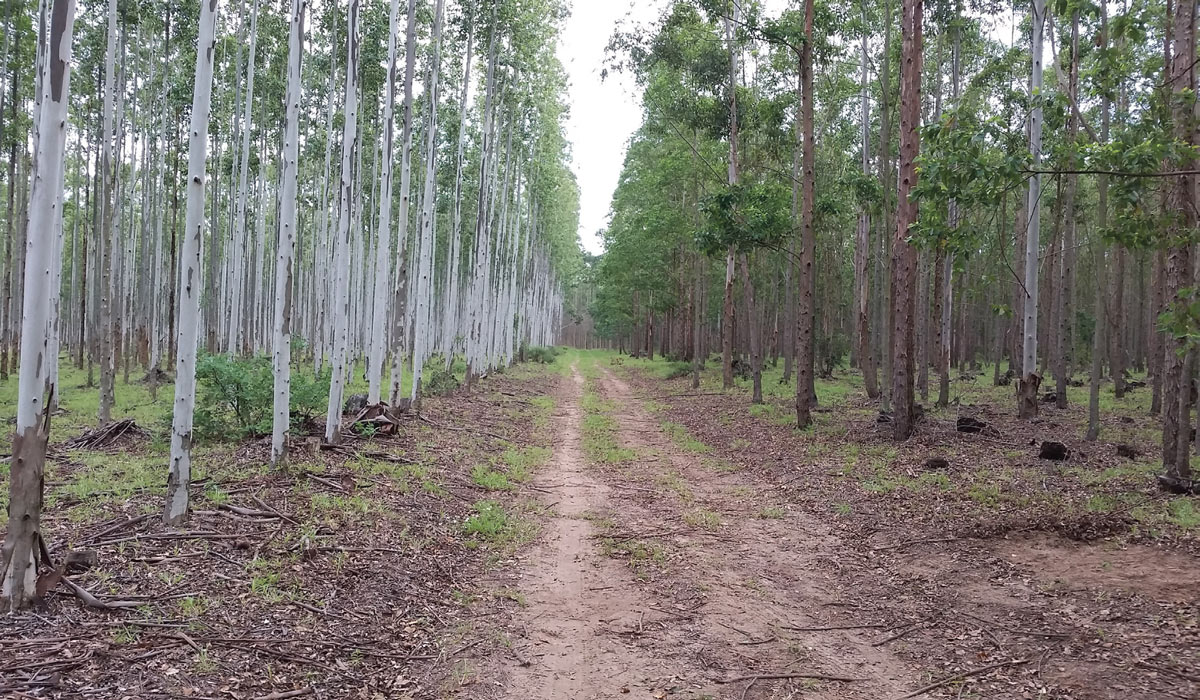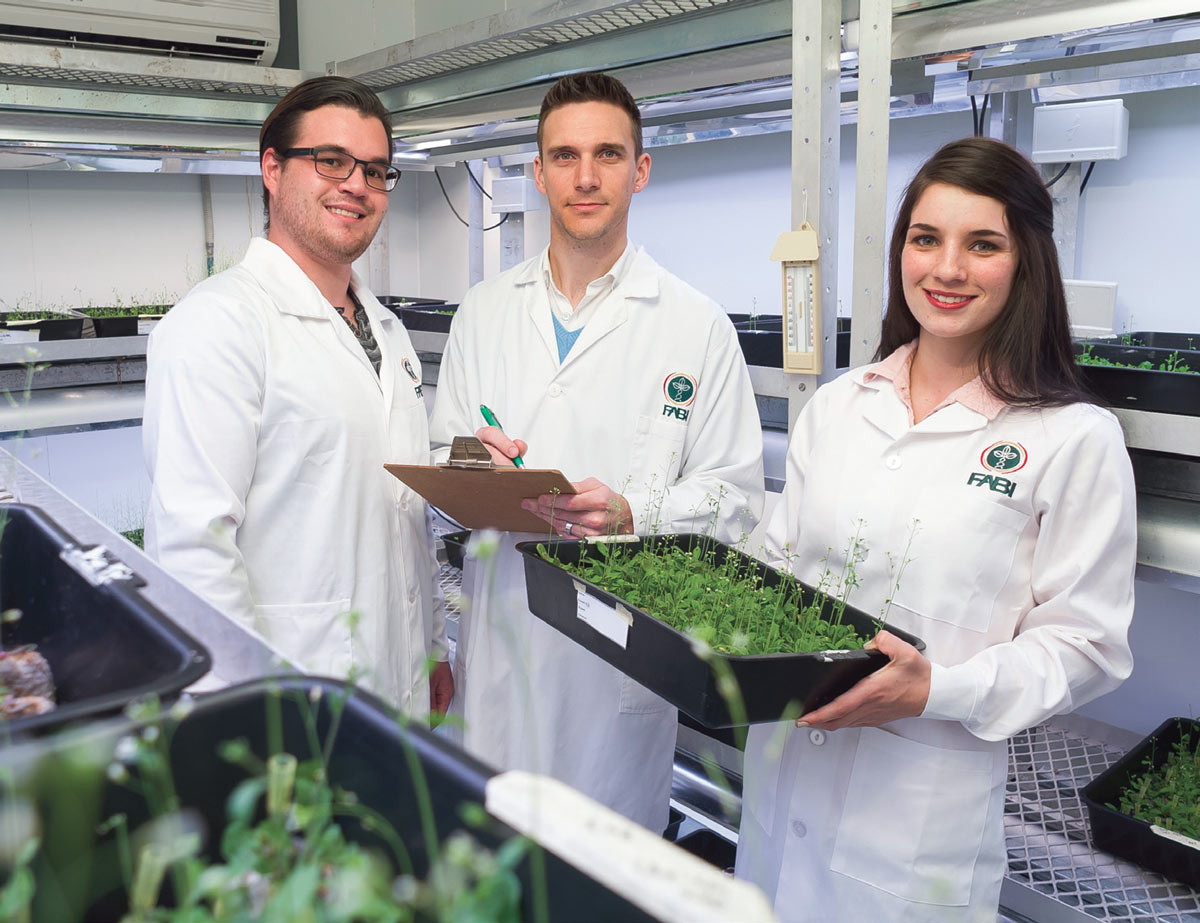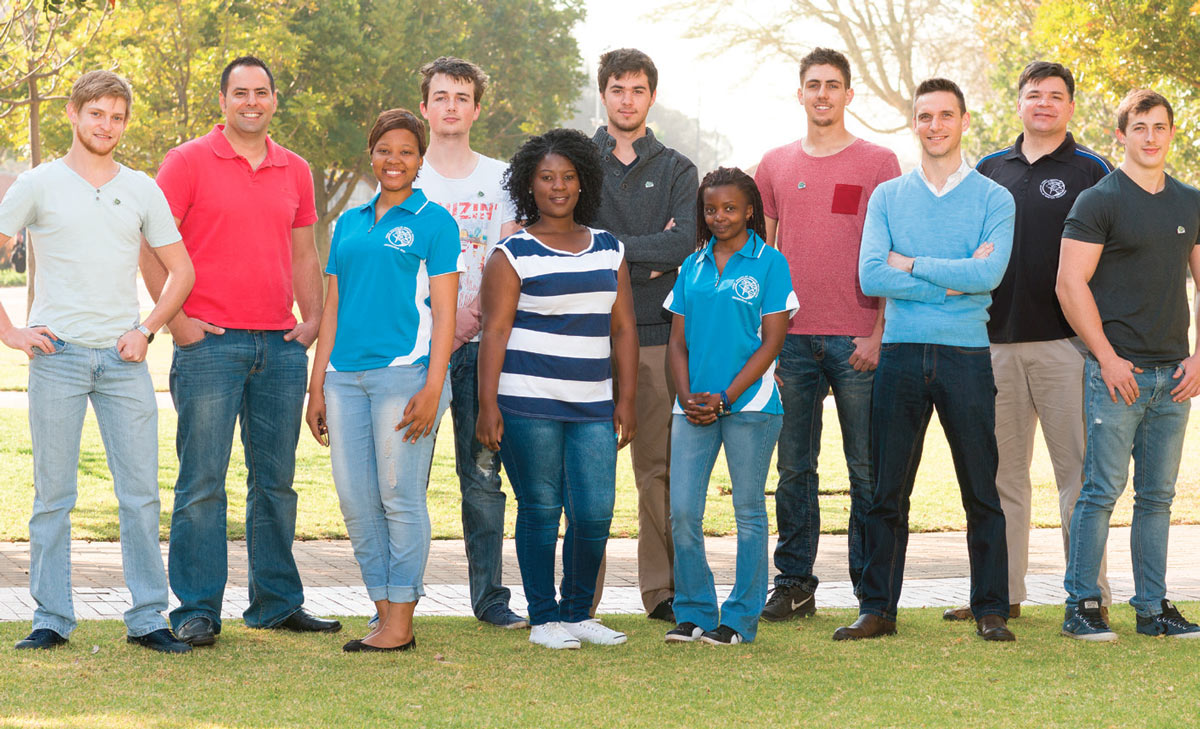The next great challenge in understanding wood development is to figure out how gene regulation is implemented by its operating system – the molecular machinery of trees that interprets DNA code – to initiate developmental programmes such as making wood. Hundreds of interactions within a densely ‘wired’ network control the genes involved in forming thickened secondary cell walls, the main component of woody biomass. By understanding these networks, we may be able to re-engineer them to manipulate the cellular structure and biochemistry of wood, thereby tailoring biomass from Eucalyptus trees toward specialised biomaterials applications.
Dr Steven Hussey in the Department of Genetics and FABI is research leader of a project on the genetic and epigenetic regulation of wood formation in trees. Dr Hussey’s team, in collaboration with the University of Toulouse, has characterised a family of 189 proteins in the E. grandis genome, some of which play critical roles in secondary cell wall regulation and cold stress responses, revealing new candidate genes for the regulation of these processes. They have shown that some control the terminal developmental programmes for the formation of vessel and fibre cells, the two main cell types comprising wood. Dr Hussey’s team members are currently exploring the possible roles of other E. grandis regulatory genes in wood formation by introducing these genes into poplar trees and studying their effects on growth and wood development in controlled greenhouse trials. The hope is that promising gene candidates emerging from this research may be deployed in new breeding approaches to enhance the properties of woody biomass for industrial processing.
A plethora of chemical modifications to the genome and associated proteins comprise a poorly understood ‘epigenetic’ code that profoundly impacts on tree development and may be heritable, much like DNA. Recently, Dr Hussey published the first genome-wide maps of epigenetic markers influencing wood development. He and his co-workers have begun to unravel the effects of activative and repressive epigenetic markers on genes in the earliest stages of wood development, showing that they regulate previously unknown genes and contribute to the evolution of gene expression patterns.


